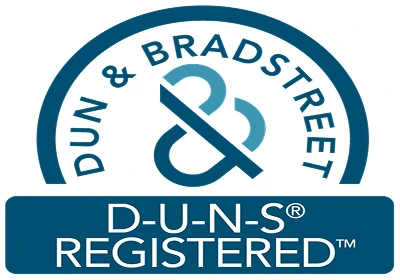Food and Beverages Published Insights
Published Date : 07 Feb, 2026
The Global Banana Ketchup Market is estimated to be valued at USD 1.45 Bn in 2025 and is expected to reach USD 2.11 Bn by 2032, exhibiting a compound annual growth rate (CAGR) of 5.5% from 2025 to 203... View more
Published Date : 07 Feb, 2026
The Global Blue Tea Market is estimated to be valued at USD 134.5 Mn in 2025 and is expected to reach USD 199.5 Mn by 2032, exhibiting a compound annual growth rate (CAGR) of 5.8% from 2025 to 2032. T... View more
Published Date : 07 Feb, 2026
The Global BBQ Seasoning Market is estimated to be valued at USD 15.45 Bn in 2025 and is expected to reach USD 22.62 Bn by 2032, reflecting a compound annual growth rate (CAGR) of 5.6% from 2025 to 20... View more
Published Date : 07 Feb, 2026
Gibberellins Market Size and Forecast – 2025 – 2032 The Global Gibberellins Market size is estimated to be valued at USD 215.8 million in 2025 and is expected to reach USD 419.6 million by 2032, exhibiting a compound annual growth rate (CAGR) of 10.3% from 2025 to 2032. Overview Gibbe... View more
Published Date : 07 Feb, 2026
Dark Chocolate Market Size and Forecast – 2025 – 2032 The Global Dark Chocolate Market size is estimated to be valued at USD 12.5 billion in 2025 and is expected to reach USD 21.3 billion by 2032, exhibiting a compound annual growth rate (CAGR) of 8.1% from 2025 to 2032. Overview Dark... View more
Published Date : 07 Feb, 2026
Grain Storage Silo Market Size and Forecast – 2025 – 2032 The Global Grain Storage Silo Market size is estimated to be valued at USD 4.8 billion in 2025 and is expected to reach USD 7.1 billion by 2032, exhibiting a compound annual growth rate (CAGR) of 6.1% from 2025 to 2032. Overview... View more
Published Date : 07 Feb, 2026
French Fries Market Size and Forecast – 2025 – 2032 The Global French Fries Market size is estimated to be valued at USD 12.5 billion in 2025 and is expected to reach USD 20.7 billion by 2032, exhibiting a compound annual growth rate (CAGR) of 7.2% from 2025 to 2032. Overview The Fren... View more
Published Date : 07 Feb, 2026
The global guacamole market is estimated to be valued at USD 423.3 Mn in 2025 and is expected to reach USD 603.6 Mn by 2032, reflecting a compound annual growth rate (CAGR) of 5.2% from 2025 to 2032. ... View more
Published Date : 07 Feb, 2026
The global herbal extract market has been gaining significant traction over the past few years due to the increasing consumer awareness about the health benefits of herbal extracts. Herbal extracts are concentrated forms of plants that are prepared by removing the act... View more
Published Date : 07 Feb, 2026
Canned tuna is an important source of nutrients needed for healthy development of the heart, brain and body. Canned tuna contains important nutrients such as omega-3 fatty acids, high-quality protein, vitamins and selenium. Canned tuna is highly nutritious and has a l... View more
Published Date : 07 Feb, 2026
The Global Pizza Market is estimated to be valued at USD 225.61 Bn in 2025 and is expected to reach USD 307.01 Bn by 2032, exhibiting a compound annual growth rate (CAGR) of 4.5% from 2025 to 2032. The global pizza ma... View more
Published Date : 07 Feb, 2026
Cheddar Cheese Market Size and Forecast – 2025 – 2032 The Global Cheddar Cheese Market size is estimated to be valued at USD 16.3 billion in 2025 and is expected to reach USD 24.7 billion by 2032, exhibiting a compound annual growth rate (CAGR) of 6.1% from 2025 to 2032. Overview Ched... View more
Published Date : 07 Feb, 2026
Brandy Market Size and Forecast – 2025 – 2032 The Global Brandy Market size is estimated to be valued at USD 7.4 billion in 2025 and is expected to reach USD 10.8 billion by 2032, exhibiting a compound annual growth rate (CAGR) of 5.4% from 2025 to 2032. Overview Brandy is a distilled... View more
Published Date : 07 Feb, 2026
The global thresher market is estimated to be valued at USD 72.67 Bn in 2025 and is expected to reach USD 106.41 Bn by 2032, exhibiting a compound annual growth rate (CAGR) of 5.6% from 2025 to 2032. ... View more
Published Date : 07 Feb, 2026
Canned alcoholic beverages are ready-to-consume drinks that don’t require any mixing. They are popular among consumers due to their ease of transport and portability. Moreover, they offer the same taste as alcoholic beverages served in glass bottles. ... View more
Published Date : 07 Feb, 2026
Functional ingredients consists of food components that are intended to enhance a product’s nutritional profile by offering benefits beyond their primary function. The ingredients are designed to offer benefits such as weight loss, heart health, immune system su... View more
Published Date : 07 Feb, 2026
Minimally processed, whole foods as well as fortified or enriched foods are considered functional foods. These include carotenoids, isothiocyanates, dietary fiber, flavonoids, polyols, plant sterols and stanols, probiotics, soy protein, phytoestrogens and vitamins and... View more
Published Date : 07 Feb, 2026
Functional beverages are a new class of beverage products that help improve the health of consumers. These drinks are aimed at providing a variety of health benefits, including digestive support, cognitive function, improved mood, and more. Functional beverages contai... View more





